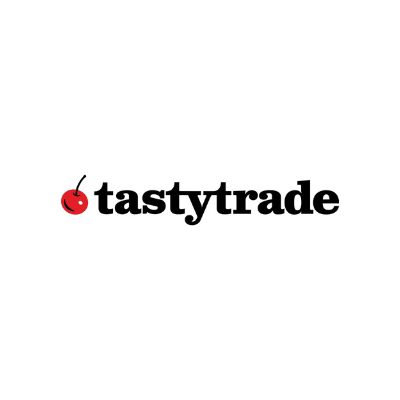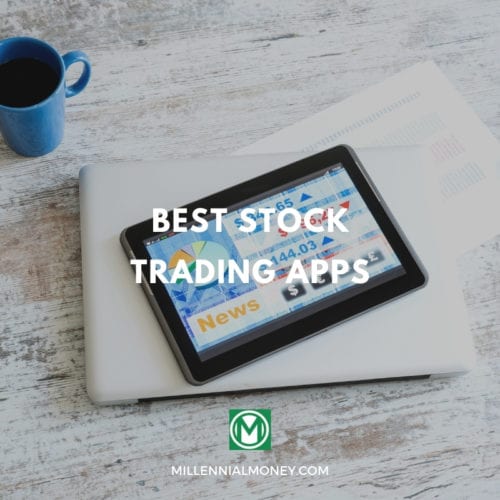The majority of investors trade stocks through online brokers. In the race for new customers, investment brokers compete fiercely with one another. Not only do they offer many of the same services, but they’re also matching one another in fees – which are now usually zero.
So choosing the best brokerage accounts for stock trading will now depend on what type of trading you plan to do.
Some trading platforms provide a more general investment approach. Others build niches to focus on options trading or more advanced investing. You should choose the broker that best matches your investment style.
My list of the best online brokers and stock trading platforms, below, includes those that excel with specific types of trading. Each broker is “the best” at something; we’ll leave it to you to choose which will work best for you.
9 Best Online Brokers for Stock Trading
Here are the best online brokers for stock trading in 2026:
- E*TRADE
- Robinhood
- tastytrade
- Interactive Brokers
- Fidelity
- Public
- JP Morgan Self-Directed Investing
- Webull
- Charles Schwab
1. E*TRADE
- Best For: Options Trading
- Minimum Investment:$0
- Trading Fees: $0 on Stocks, ETFs, and Options (+ $0.65 per contract)
E*TRADE wins the prize for best options trading, with no commissions, customizable options chains, and other advanced options trading tools. It’s a great pick all around for active traders who want educational resources, data, and a user-friendly platform with low costs.
With Power E*TRADE for pros and the more simplified E*Trade Web, investors at every level can get the necessary resources.
Pros:
- Offers futures trading
- Commission-free stock, ETF, and options trades
- Highly rated mobile app
- Automated investing option
- Two mobile apps for pros and beginners
Cons:
- No direct crypto trading
- No fractional shares for active investing
- Transfer out fees
2. Robinhood
- Best For: Cryptocurrencies / Stocks / ETFs
- Minimum Deposit: $0
- Trading Fees: $0 on Stocks, ETFs & Options (no per contract fee)
If you want a simple app that lets you trade a mix of crypto, stocks, and ETFs, Robinhood is our top recommendation. It’s an excellent starting point for new investors who want to actively trade, letting you buy fractional shares for just a dollar.
We’re also fans of Robinhood’s user experience. The Robinhood app is clean and user-friendly, and the paid version comes with additional data from Morningstar and Nasdaq.
Pros:
- No commissions or account minimums
- Straightforward trading experience
- Fractional shares trading
- Crypto trading and storage
- Cash management account
Cons:
- No mutual funds
- Limited customer support
- Limited research for free users
3. tastytrade
- Best For: Budget-minded Active Traders
- Minimum Deposit: $0
- Trading Fees: $0 on stocks and ETFs; $1 to buy options (capped at $10 per leg), $0 to sell
If you’re a cost-conscious active investor, tastytrade might be the right platform for you. tastytrade is best suited for options investors, with a rewarding commission structure that’s hard to beat.
While the tastytrade platform and its tools are mostly centered around options, it’s also a great platform for trading stocks, ETFs, futures, and crypto, though it lacks mutual funds.
Read our full tastytrade review.
Pros:
- Educational content
- Competitive options commissions
- Crypto trading
- Advanced options trading tools
- Customizable platform
Cons:
- Average margin interest rates
- No mutual funds are available
4. Interactive Brokers
- Best For: Active Traders
- Minimum Deposit: $0
- Trading Fees: $0 on US Stocks & ETFs; thousands of no-fee mutual funds
Interactive Brokers is one of the best platforms on the market for active traders. It offers a powerful trading platform, access to 135 global markets in dozens of countries, and extensive research capabilities.
The IBKR platform adds a ton of value for active traders, with minimal fees and commissions across the board and notably competitive margin interest rates.
Read our full Interactive Brokers review.
Pros:
- Powerful desktop, computer, and mobile platforms
- Extensive news, research, and data tools
- Low-margin interest rates
- Unmatched lineup of assets
- International trading available
Cons:
- Can be complicated for new investors
- Confusing pricing
- Mediocre phone support
Learn more about Interactive Brokers
5. Fidelity
- Best For: All-Around
- Minimum Investment:$0
- Trading Fees: $0 on US Stocks, ETFs & Options (+$0.65 per contract)
Fidelity is one of our top picks, with something to offer long-term seasoned investors and beginners alike. It’s a full-service broker with a broad range of investment tools, low costs, and an extensive trading library that includes fractional shares. And Fidelity’s top-notch customer service makes it an even more appealing pick.
Read our full Fidelity review.
Pros:
- Dependable order execution
- Top-tier trading tools and in-depth research
- No account fees or minimum
- No stock or ETF commissions
- Fee-free mutual funds
Cons:
- No forex, futures, or cryptocurrency trading
- Steep fee for broker-assisted trades
- Higher options fees than some competitors
6. Public
- Best For: Alternative Assets
- Minimum Deposit: $0
- Trading Fees: $0 on Stocks, ETFs, or crypto
We like Public’s versatile line of alternative assets. Beyond standards like stocks and ETFs, you can add crypto, fine art, luxury goods, and collectibles to your portfolio. And Public lets you invest in stocks and crypto with as little as $1.
Public is also suitable for beginners and experienced investors, with community investment advice, webinars, powerful analytical tools, third-party research, and learning resources.
Pros:
- Offers fractional shares
- Community insights
- Advanced data tools
- Direct crypto trades
- Intuitive platform
Cons:
- Limited account types
- No options, mutual funds, or bonds
- No crypto transfers to another wallet
7. JP Morgan Self-Directed Investing
- Best For: Casual traders
- Minimum Deposit: $0
- Trading Fees: $0 on Stocks & ETFs; $0.65 per Options contract
The JP Morgan Self-Directed Investing account is an impressive pick for casual investors who want a simple platform for executing trades. Having a J.P. Morgan Self-Directed Investing account lets you manage your bank and investment accounts in one place.
The platform is easy to use, and it provides enough tools to satisfy newer investors looking to learn on the go, like a Portfolio Builder tool and a Wealth Plan dashboard.
Read our full J.P. Morgan SDI review.
Pros:
- Chase integration
- User-friendly trading platform
- Also offers robo-advising
- Minimal fees
- Signup bonuses
Cons:
- Limited access to third-party research
- No fractional shares investing
- Doesn’t offer crypto, forex, or future trading
8. Webull
- Best For: Mobile App and Stock Trading
- Minimum Investment: $0
- Trading Fees: $0 on Stocks, ETFs & Options (no per contract fee)
Webull offers an intuitive mobile app with real-time data and advanced analytical tools so you can trade on the go.
You can buy fractional shares with as little as $5 and score bonus shares just for signing up. It’s a solid pick for intermediate stock traders who know the ropes and want a sleek mobile experience.
Pros:
- User-friendly app
- Low costs
- Crypto trading
- Access to traditional, Roth, and rollover IRAs
- Bonus stocks
Cons:
- No mutual funds
- Limited educational resources
- No live chat tool
9. Charles Schwab
- Best For: Beginners
- Minimum Investment:$0
- Trading Fees: $0 on Stocks, ETFs, and Options (+ $0.65 per contract)
Schwab is our pick for beginners. It’s packed with educational resources through Schwab Trading Services and has accessible customer support online and in-person, with hundreds of branches nationwide. Schwab recently acquired TD Ameritrade, and all TD accounts are moving over to Schwab.
With no commissions and a large fund lineup, it’s also a sound choice for active and experienced investors.
Pros:
- Over 4,300 NTF mutual funds
- No account minimum
- Extensive research tools
- Fractional shares
- 24/7 customer support
Cons:
- No forex or direct crypto trading
- No fractional shares of ETFs
- Average margin rates
Easily Compare the Best Online Brokers
| Broker | Minimum Deposit | Stock Trade Commission | Option Contract Commission | Best for |
| JP Morgan SDI | $0 | $0 | $0.65 | Casual traders |
| Interactive Brokers | $0 | $0 | $0.65 | Active traders |
| Fidelity | $0 | $0 | $0.65 | All traders |
| Public | $0 | $0 | n/a | Alternative assets |
| Webull | $0 | $0 | $0 | Mobile trading |
| Charles Schwab | $0 | $0 | $0.65 | New traders |
| E*Trade | $0 | $0 | $0.65 | Options trading |
| tastytrade | $0 | $0 | $1.00 | Active traders on a budget |
Methodology
When choosing the best online brokers, we consider important information, including the following:
- Commissions
- Type of investments
- Minimum balance requirements
- Customer service
- Educational opportunities
- Access to human advisors
What is an Online Brokerage Account & How Does it Work?
An online brokerage account is like an online bank account, except you can direct the broker to invest the funds you deposit into assets, such as stocks, bonds, cryptocurrency, futures, and forex.
You can only purchase assets your chosen broker offers, so it’s important to understand what assets are available before choosing a broker.
Your online brokerage account has a dashboard, similar to your bank accounts, showing your cash balance (uninvested balance), and the values of any investments you made through the broker.
If you want to make trades (buy or sell investments), you must go through your online brokerage account and create the order to buy or sell the investment.
How to Choose a Brokerage Account
Choosing the best online brokers can feel like a big decision when so many are available. Here are the top factors to consider.
- Commissions and fees: Pay close attention to the commission and fees charged. As you can tell from our list of the best online brokers, many don’t charge a commission fee for stocks or ETFs, so why choose a broker that charges? Look for those with the lowest fees to keep more money in your pocket.
- Experience: Determine how much experience you have and the capability of the tools you need. Some online brokers have basic, user-friendly tools that are great for beginners, and others have advanced tools that could be well over a beginner’s head.
- Education and resources: Beginning and experienced investors need access to ongoing education and resources. Look for platforms that offer the level of education you desire.
- Minimum balance requirements: Consider the minimum balance requirements each platform requires and determine if you can easily meet it.
Pros and Cons of Online Brokerages
Understanding the pros and cons of online brokerages can help you determine if they’re the right choice for you.
Pros
- Offers a large selection of investment products
- Allows investors to make and execute investing decisions as they want
- Many online brokers include educational tools
- Many online brokers have a zero-commission structure
Cons
- Requires the ability and knowledge to manage investments yourself
- Can be overwhelming for beginners
- May allow for emotional (spontaneous) investing
FAQs
Which Is The Best Online Brokerage for Beginners?
If you are looking for the best brokerage for beginner investors, we have a tie between Charles Schwab and Fidelity.
Not only are they two of the largest, full-service investment brokerage firms in the industry – which provides the stability beginners need – but there’s a long list of tangible benefits to make any new investor happy:
- No Minimum to Invest: Neither Fidelity nor Charles Schwab requires an initial account minimum to invest. Though you will certainly need funds in your account to begin investing, you can open your account with no money and make periodic additions until you have enough funds to begin investing.
- No Fees on Trades: Neither firm charges fees on stock trades, exchange-traded funds (ETFs), or even options trading. Since beginning investors will likely start with small portfolios – maybe just a few hundred dollars – the last thing they need are trading fees eating into their accounts and their profits.
- Great Customer Support: Both platforms provide extensive customer service. You can reach a live representative by phone or live chat. If you prefer face-to-face, each company has an extensive network of local branch offices.
- Tools: Charles Schwab and Fidelity offer a wealth of trading tools and investment research to help beginning investors up their game and get the knowledge needed to become experienced investors. (Note that Schwab does not currently provide forex trading.)
- Robo-Advisors: Another benefit offered by Fidelity and Schwab is managed portfolio options. Each platform offers its own robo-advisor. Robo-advisors are automated investment platforms that provide full portfolio management for a very low annual fee. With a robo-advisor option, both Charles Schwab and Fidelity offer beginning investors an opportunity to have some or all of their portfolios professionally managed.
Who Are The Cheapest Online Brokers?
Many of the online brokers we’ve included on our list are also some of the best online brokers that charge no fees for trading stocks, ETFs, options, and often mutual funds.
Low-Cost Online Brokers:
- Webull
- Interactive Brokers
- E*TRADE
- Fidelity
- Charles Schwab
- Robinhood
- tastytrade
If you’re looking for low-cost, you can’t go wrong with any of the platforms in this list. Trading fees are going, going, (almost) gone in the investment brokerage industry. Commission-free trades and commission-free ETFs aren’t just the waves of the future. They’re the wave of the present for almost all the leading trading platforms.
We can thank the Internet for that. Online trading has changed the entire process, automating tasks your human broker once had to do manually. Robinhood and the pioneering robo-advisors Wealthfront and Betterment were among the first “discount brokers,” though they’ve never offered a full-service approach.
Now, the success of this business model has forced most of the major, full-service brokerage firms to follow suit and offer investment accounts with mobile trading, commission-free trades, and no minimum deposits to open accounts.
So, what does this mean to a beginning investor? It means fees don’t have to be a major determining factor when you compare brokers. This frees you up to look into other features such as fractional shares, real-time trades, and highly rated mobile apps.
You could even choose a brokerage account based on how well you like its website or customer support!
Which Online Brokers Website Is Best?
We have another tie between Fidelity and Charles Schwab. While neither of these giants may be the absolute leader in any single category (except for beginner investing), each is near the top in virtually every category. And the proof is that the two are the largest diversified investment brokers in the industry.
Which are The Best Online Brokers For Retirement Accounts?
Choosing the best online brokers is a noble goal when you’re ready to start investing for retirement (and you should start now if you haven’t already). But coming up with the answer has gotten more difficult — or a lot easier, depending on your point of view.
Online competition has flattened out these fee structures, making full-service brokers resemble discount brokers.
So when you open your IRA (or any other kind of new account) you can just about ignore trading fees and commissions since they’re almost always going to be $0.
Instead, you can compare account types, customer service, ease of use, and whether a human advisor is available.
Once again, my nod goes to Fidelity or Charles Schwab. If you’re a new investor I’d give a slight edge to Fidelity because of its educational resources. It pulls in expert guidance from a wide variety of sources to give you a broad view of the securities you’re considering.
While you could open an IRA within your robo-advisor like Betterment, do this only if you really do want a hands-off approach and don’t plan to self-direct or have a conversation about your retirement accounts with a human advisor.
And one more piece of advice: Watch out for IRA closing fees if you want to change brokers in the future.
tastytrade, Inc. (“tastytrade”) has entered into a Marketing Agreement with Millennial Money (“Marketing Agent”) whereby tastytrade pays compensation to Marketing Agent to recommend tastytrade’s brokerage services. The existence of this Marketing Agreement should not be deemed as an endorsement or recommendation of Marketing Agent by tastytrade and/or any of its affiliated companies. Neither tastytrade nor any of its affiliated companies is responsible for the privacy practices of Marketing Agent or this website. tastytrade does not warrant the accuracy or content of the products or services offered by Marketing Agent or this website. Marketing Agent is independent and is not an affiliate of tastytrade.







Read 1 comment or add your own
Read Comments